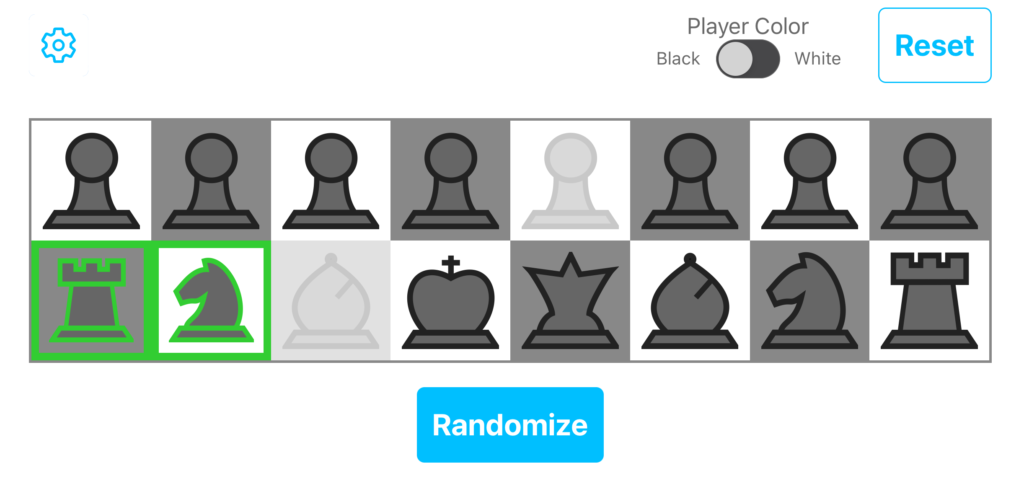Introduction
My 6 year old nephew recently learned how to play chess. He knows how each piece can move, and he knows the basic strategy of how to win. So far, I am a much stronger player than him, and I would like to foster his learning, and love for the game.
Letting him win?
I enjoy playing with him, but I am conflicted on whether or not I should let him capture my pieces, or beat me.
Children are perceptive and can sense when adults are not playing to their full potential, which can ultimately undermine their sense of accomplishment and confidence in their abilities. Here are some reasons why:
- Children learn from their mistakes
Losing a game can be a valuable learning experience for a child, as it can help them identify areas for improvement and develop their strategic thinking skills. If you always let them win, they may not learn as much from the game. - It builds resilience
Learning to lose and recover from setbacks is an important life skill, and chess can be a great way for children to develop resilience and persistence in the face of challenges. - It promotes fairness
Chess is a game of skill, and it is important for children to learn that winning requires effort and practice. Letting them win without earning it can create a sense of entitlement and undermine the fairness of the game.
I think that the day that he legitimately beats me (and I am sure he will), will be a great day for him, and it will feel like a true accomplishment.
Strategies to even the playing field
There are several ways to even the playing field when playing with a less experienced player.
- Give the weaker player more time
If using a timer, allow the weaker player more time, or limit the stronger player’s time per move. - Play with imbalanced material
The stronger player can start with fewer pieces. For example, you could give the weaker player an extra queen, or the stronger player could start without a knight. - Limit the possible pieces the stronger player can move
Each turn, randomly select a few pieces that the stronger player is allowed to move.
For the third option, there are several ways this can be accomplished:
- Equalizer Chess Dice
The stronger player rolls dice to determine which pieces they are allowed to move. - Regular dice
The stronger player rolls 2 normal dice, where the numbers correspond to pieces they are allowed to move.
1 = pawn, 2 = knight, 3 = bishop, 4 = rook, 5 = queen, 6 = king - Chess Equalizer
A free iOS app I created which randomly selects the pieces you are allowed to move.
Download here.
The app has several features that the other approaches don’t.- Removes eliminated pieces from the random selection
- Is configurable, so as the weaker player gets stronger, the stronger player can select their move from more possible pieces.

I like to have the app visible to both of us, so he knows that I am limiting my moves, and that we are playing in an uneven way.
A huge benefit is that the game is challenging and fun for me. I can play at my full strength and he still has a chance to capture pieces and win.
One issue with limiting my pieces is that it adds a bit a chance to the game, where he may have pieces that are threatened that he doesn’t have to protect each turn. It is a gamble if my threatening piece is allowed to move the next turn.
Conclusion
I have really enjoyed playing with him, and think it has several benefits to him:
- Improves his chess skills
Playing with an adult can challenge children to improve their chess skills, as adults can provide feedback and guidance on strategic thinking and game play. - Learn new strategies
Adults have more experience with the game and can teach children new strategies and techniques to improve their game. - Develop critical thinking skills
Chess is a game of critical thinking, and playing with an adult can help children develop their critical thinking skills as they learn to analyze different moves and anticipate their opponent’s next move. - Build social skills
Chess is a social game and playing with an adult can help children develop social skills such as communication, sportsmanship, and respect for others. - Bonding opportunity
Playing chess with an adult can be a fun and engaging way to bond with them and create positive memories together.
I am excited to see his chess skills improve, and I hope it is a game we can enjoy together for many years.